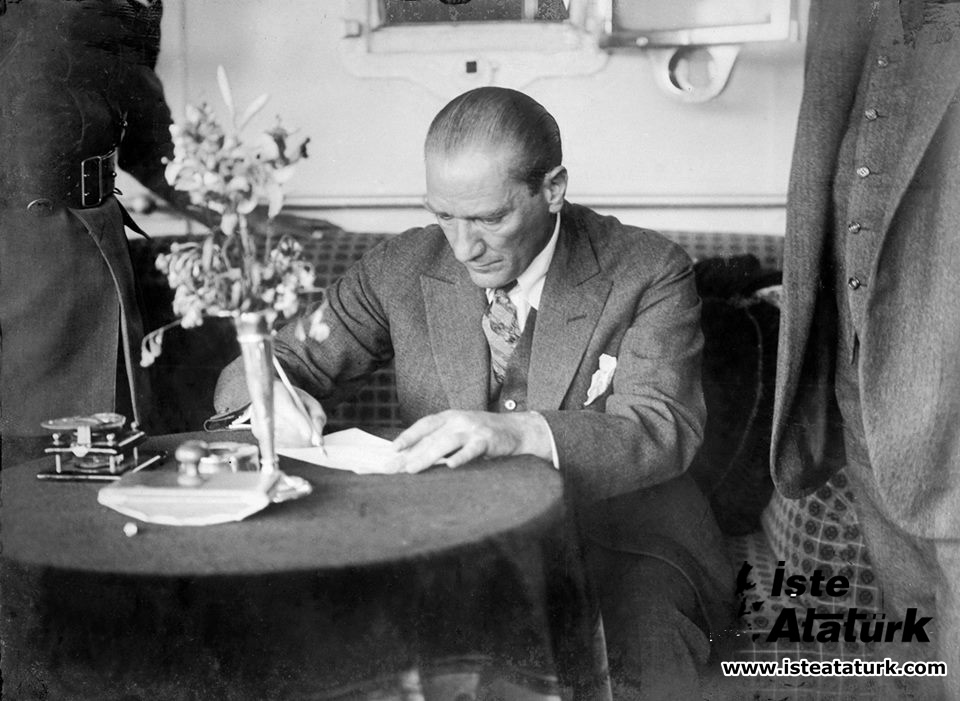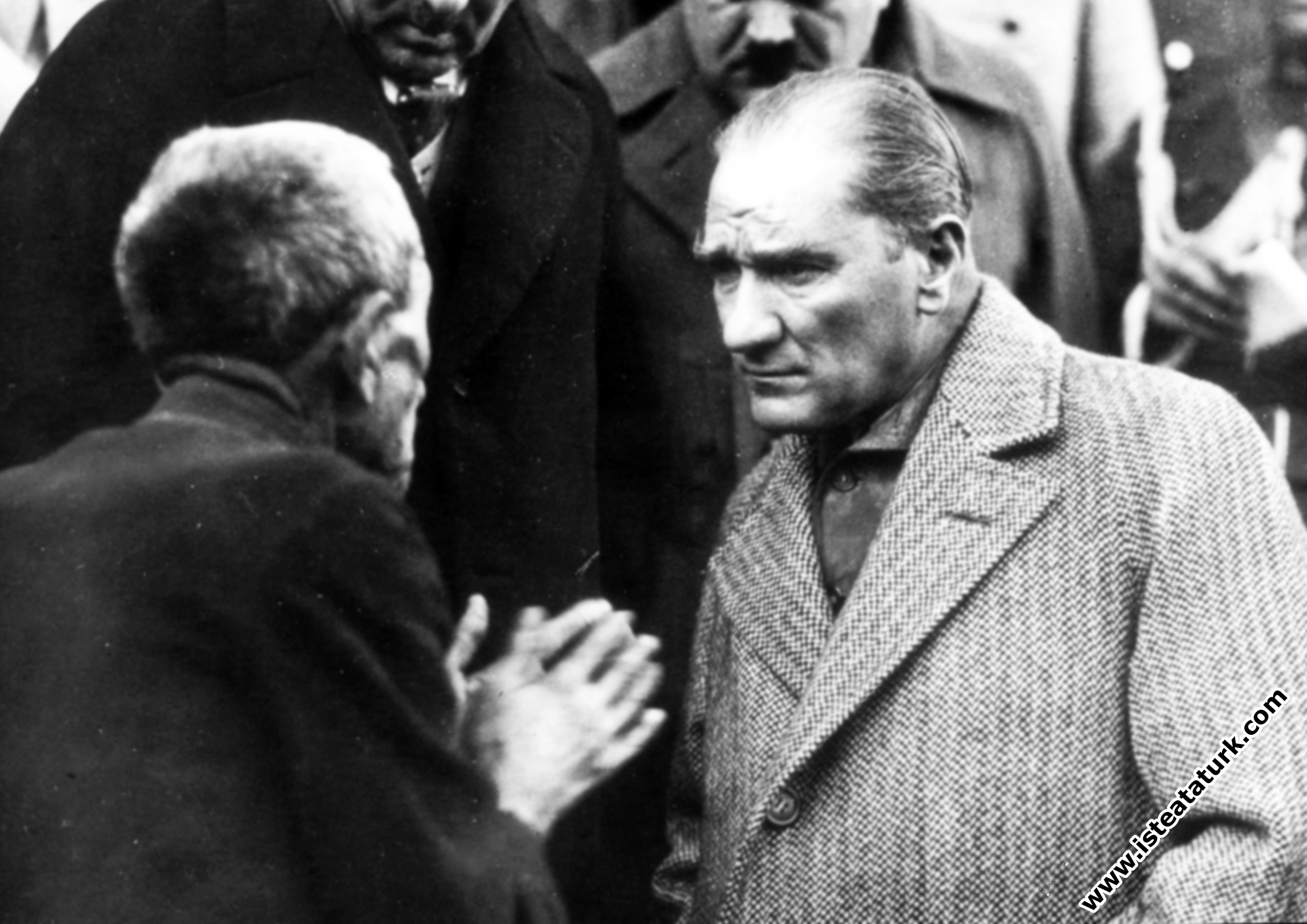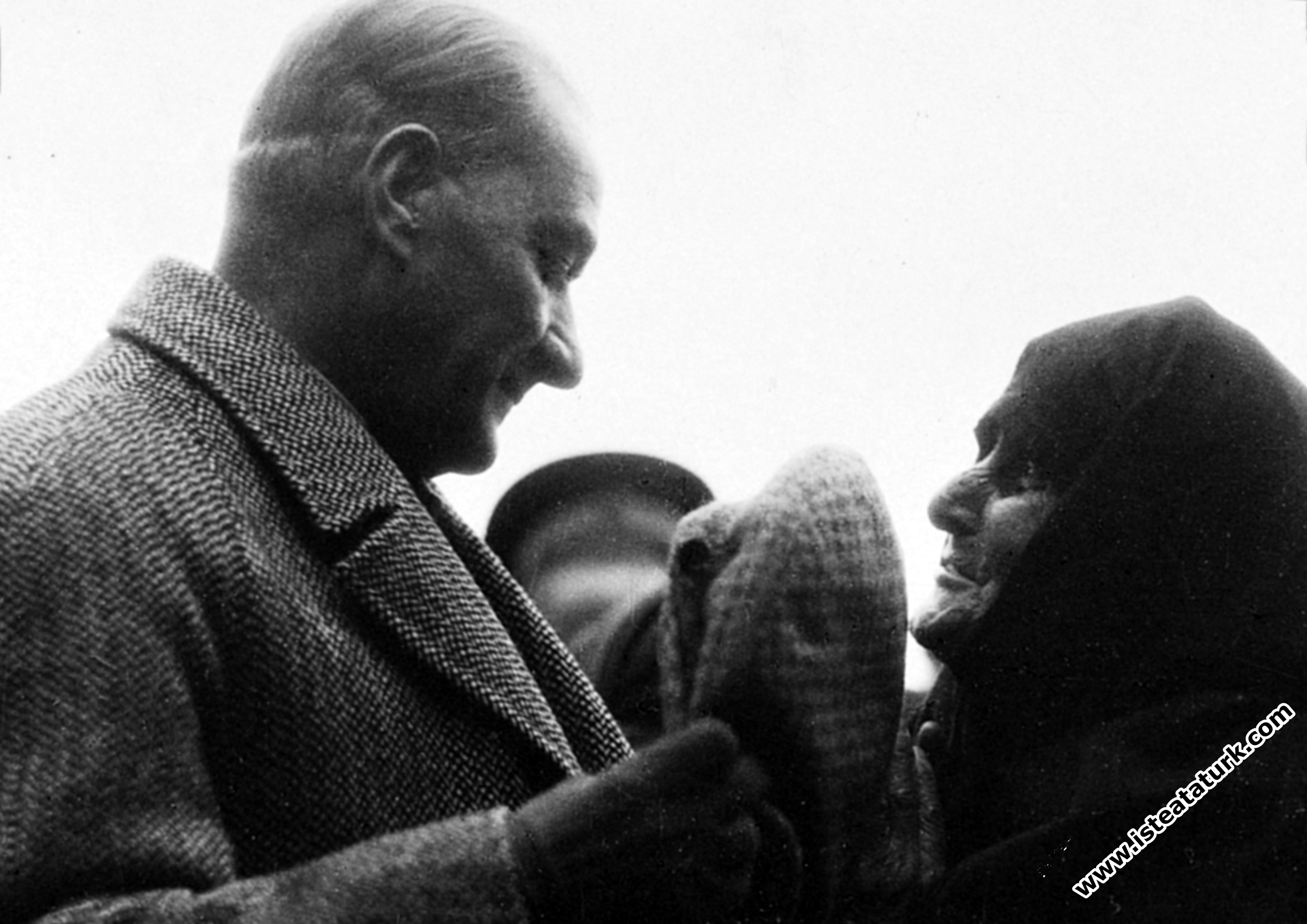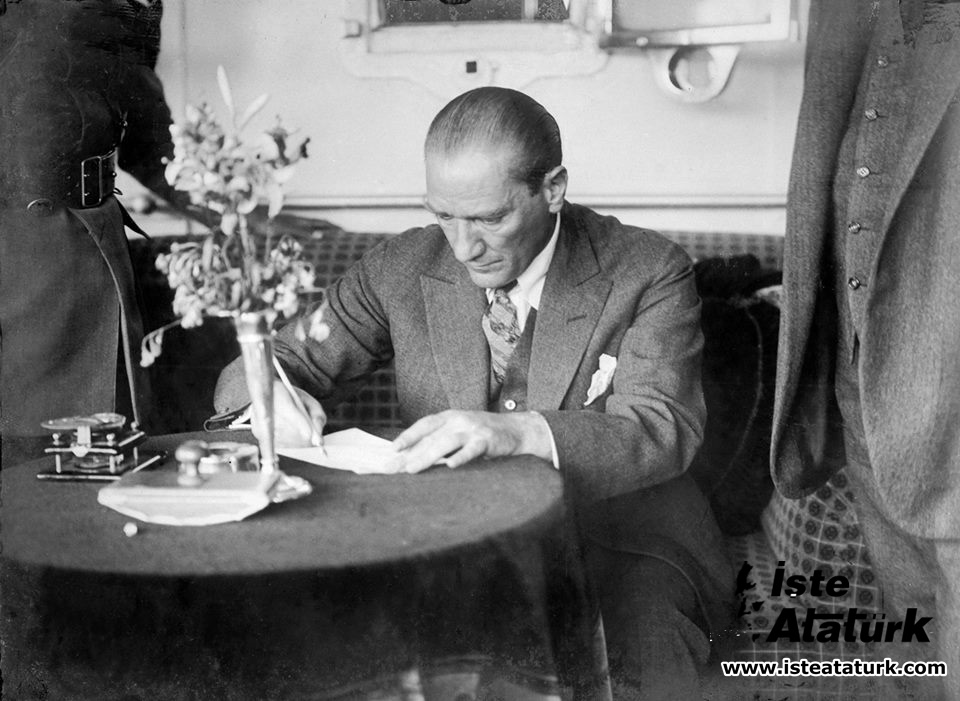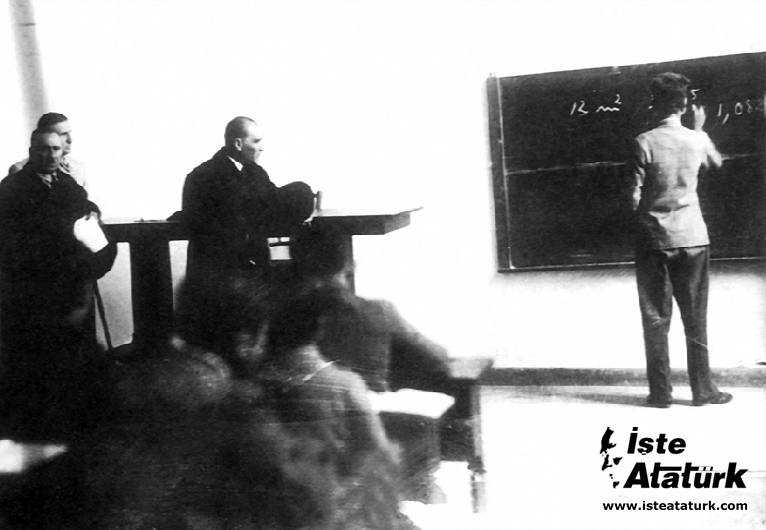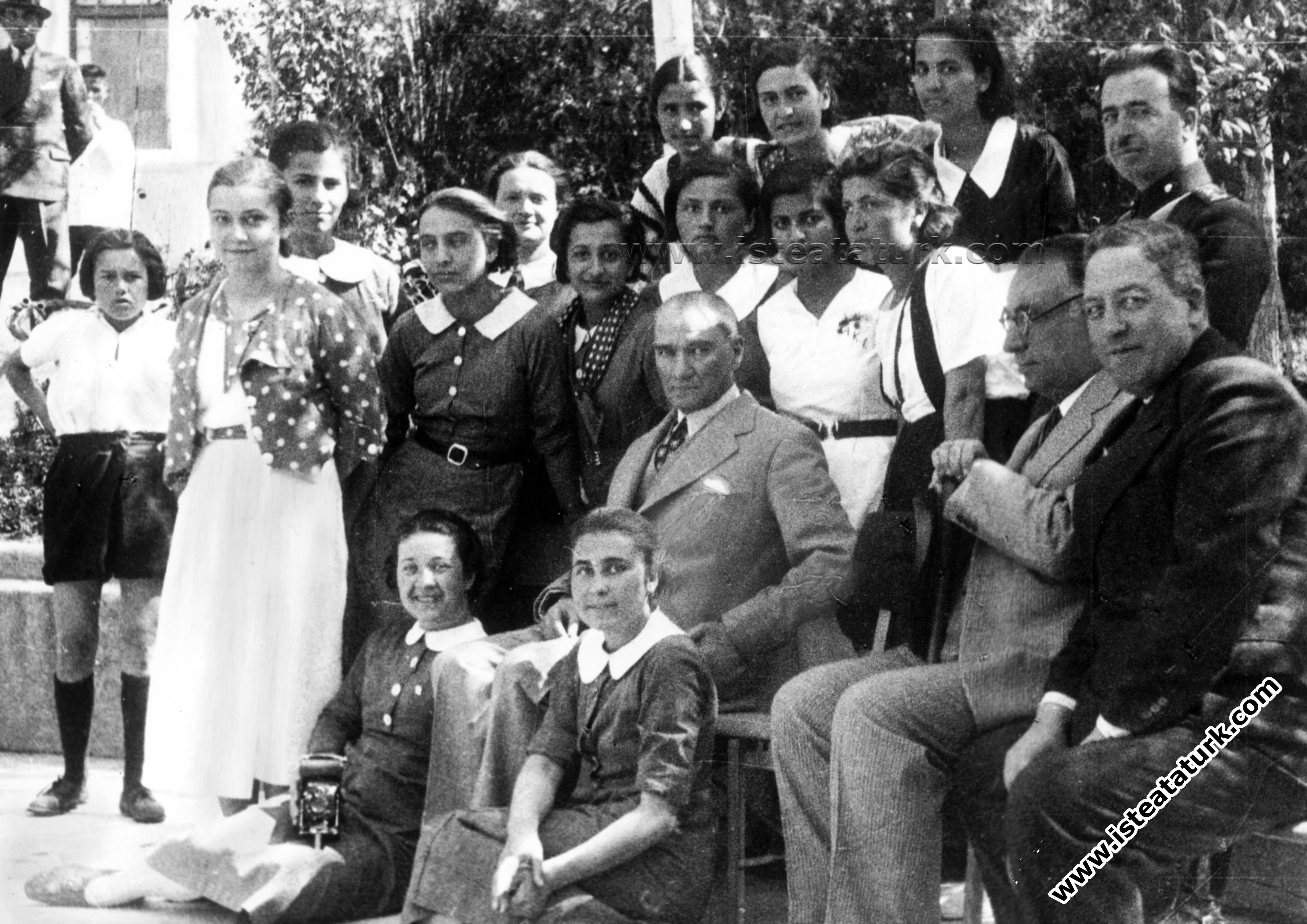
Secularism - Religion Relationship
Character Size
Secularism, which comes from the adjective laikos used in ancient times, has matured in human history and completed its development with the separation of religion and state after the separation of religion and philosophy, science, law and art.
RELATIONS OF SECULARISM-RELIGION
SUMMARY
Secularism, which comes from the adjective laikos used in ancient times, has matured in human history and completed its development with the separation of religion and state after the separation of religion and philosophy, science, law and art.
In a non-secular order, religion is politically abused and used by various people for personal gain. These abuses turn into superstitions over time, and they are used to create a reactionary force that will destroy every good and beautiful thing. In such an order, religion loses its purity and essence. During the decline period of the Ottoman Empire, it is possible to see the developments in this direction with all their nakedness.
The main task of religion is to ensure that people, as individuals, attach themselves to God, a supreme being. While performing this duty of religion, it receives the greatest help from secularism. Because secularism, one of Atatürk's principles, saves religion and religious feelings from exploitation in the name of religion, from being a tool for personal gain, and preserves them in the purest form in their holy place in conscience. Entrance
Atatürk's principles and reforms, which constitute the Kemalist thought system, stem from the needs of the Turkish nation. Today and in the future, it aims the modern, happy and prosperous life of the Turkish nation and is the guarantee of the future of the independent Republic of Turkey.
The principle of secularism is the general feature of the Kemalist thought system. With the implementation of this principle, the Turkish people were saved from superstitions and exploitation in the name of religion, while religion was saved from being a tool for personal interests and preserved in its holy place in the conscience in its purest form.
In this study, we will discuss the relations of secularism with religion, the effects of these relations on society and science, and try to reveal Atatürk's thoughts on this subject.1
A. The Origin of Secularism and Its Relationship with Religion
The word laicism, which comes from the adjective laikos used in ancient times, has passed into our language from French. This adjective was used for non-religious people in Ancient Greece. According to this, a secular person means a person from the people who do not belong to the clergy.
In order to understand the historical development of secularism, it is necessary to look at the development of humanity. Religion begins with the emergence of man and exists in all kinds of human societies. Religion is not only seen as a belief system from the beginning of societies. It is seen as a way of explaining the universe and a source of measures and regulations necessary for the administration of societies. As such, science, philosophy, art, law, and the state all had religious character in the beginning. According to this, the meaning of secularism as a historical term is the separation of religion and philosophy, religion and science, religion and law, religion and art. The separation of religion and state constitutes the last link of this development.2
In order to explain the relations between secularism and religion, I would like to discuss religion and its relations with other social institutions in the light of Kemalist thought. According to Kemalist thought, religion, which constitutes one of the basic institutions of societies, is an effort for people to understand, contact with and live in accordance with the reality beyond the events that occur in the universe and beyond the limit of science. The main task of religions based on revelation is to ensure that people, as individuals, attach themselves to God, a supreme being.3
The full realization of this essential task of religion can only be achieved in the secular order. In other words, it is the main condition for religion not to interfere in world affairs, to leave world problems to other institutions to solve with scientific methods according to new discoveries, to fulfill its basic duty. Only in this way is the relationship between religion and personal and political interests cut off. Malicious people cannot use it for their religious purposes.
Therefore, in a secular society, cultural, social, political, technological, military and educational institutions are excluded from the influence of religion. Religion cannot direct and control these institutions. Hz. The following words of Muhammad show that Islam is also suitable for this: "If I order something related to religion, follow it. You know your worldly affairs better than I do. Do them based on your knowledge and experience." While the Prophet Muhammad was spreading the religion of Islam, he explained this issue in the letters he sent to other states as follows. After saying, "Allah is one and I am responsible for telling you the truth from his side. The religion of truth is the religion of Islam and accept it," he continued as follows: "Do not think that by making you accept the religion of truth, I will be confiscating your nation and your government.
B. Relations between Secularism and Religion from the Ottoman Empire to the Turkish Republic
Secularism helps religion to fulfill its basic duties by keeping it pure and clean, by keeping the religious institution out of the issues that are determined and proven by scientific methods regarding the work of other worldly institutions and that fall within the human's ability to examine, research, test and explain. In a non-secular order, religion is politically abused and used by various people to gain personal interest, corporate interest, political party interest, and similar interests. These abuses turn into superstitions over time, and religion loses its purity and essence.
Over time, superstitions are perceived as a religious rule and portray religion as an obstacle to the development of society. As a result, religion becomes a pile of superstitions that hinder every innovation and every modernization movement. This use of religion in society dulls people's national feelings and prevents the formation of national consciousness necessary for establishing a national state. One of the factors that prepared the collapse of the Ottoman Empire was the acceptance of superstition as a religion in the last periods of this state, and the constant throwing of science and national consciousness into the background.
In the last days of the Ottoman Empire, people were removed from science and world affairs. The thought spread among the people that the blessings of the world were useless and that one should work for the Hereafter, and the logic of one bite and one cardigan was enough for this world. Acting with this worldview, the people abandoned worldly affairs and began to think about how they would account for their worldly blessings in the Hereafter. This worldview, which is supposedly based on religion, caused us to constantly regress against the Westerners who work for the world as well as the hereafter, and eventually the Ottoman Empire collapsed. There can be no such thing in secularism. While laicism preserves religion in its sacred place in people's consciences, it conducts state and world affairs in accordance with the requirements of the age.4
In the examples below, we see how the superstitions fabricated in the name of religion are prevented from developing.
Hazarfen Ahmet Çelebi is the first Turk to attempt to fly. He climbed the Galata tower and flew on wings. It was considered blasphemous for him to fly instead of being applauded, and it was decided to kill him, but the sultan spared his life by sending him into exile to Algeria. Lagari Hasan Çelebi is the first person to discover the rocket. He got on a rocket and crossed the Bosphorus. He was also sentenced to exile on the grounds that he committed an act considered blasphemy. While examining the developments in the sky with an observatory built in Istanbul, this observatory was demolished with a fatwa of the Şeyhülislam stating that it is religiously forbidden to study the stars. In an experiment conducted by scientists to reveal the importance of air for animals, after two mice died, the Sheikhulislam was again consulted and a fatwa was taken.
With the fatwas of Ebussuud Efendi and Birgili Mehmed Efendi, who were famous sheikhslams of the 16th century, medical science was deemed an unnecessary science and was excluded from the education programs in madrasahs. In their view, a Muslim should learn the sciences necessary to go to Heaven, not the others.
As can be seen, if deep religious bigotry and superstitions pervade a society, superstitions are seen as a religious order and constitute an obstacle to development.
In societies where the state administration is not secular, people sometimes had to resort to deception to meet their needs. One of them is about interest. In the Ottoman Empire, it was forbidden to openly exchange interest. However, they were giving and receiving interest in various ways without mentioning the name of interest. For example, a Muslim will borrow 100 lira from a bank at 20% interest. First, he goes and buys a rosary in front of the cashier for 20 liras. Then he gives this rosary back to the bank. He pays the interest of the 100 liras he will receive in this way in cash and borrows 100 lira from the cashier to pay it a year later. In this way, the same rosary is sold maybe a hundred times a day and given back to the bank. They call this and similar tricks approved by the Shaykh al-Islam fatwa as "rib-i mulzem-i shari" of money.5
These examples show that secularism helps to protect religion in the purest form, protects religion from abuses and personal interests, and removes superstitions based on so-called religion that have been invented to prevent the development of society.
The secularism that Atatürk practiced in Turkey has these aims. Atatürk wanted religion not to interfere with state affairs, and for Turkish people to remember their Turkishness first and then become a good Muslim. Atatürk said: "Religion is a necessary institution. There is no way for nations without religion to continue. There is only one thing that religion is the devotion between Allah and the servant"6, "Our nation has two powerful virtues like religion and language. No force can pull these virtues from our nation's heart and conscience. could not and cannot receive"7.
"Our great religion states that not working has nothing to do with humanity. Some people think that following the innovations of the time is an infidelity. The real disbelief is their assumption. What is the purpose of those who make this wrong interpretation, other than to want Islam to be enslaved by unbelievers? Do not think that every turban is a teacher, being a teacher is not a turban. Atatürk said, "It is with the brain." He provided financial assistance to Elmalılı Hamdi Yazır to write the commentary "Hak Dini Kuran Dili" and had this work printed by the government and distributed to the public free of charge or at a very cheap price. He made an offer to Mehmet Akif for the translation of the Qur'an into Turkish. He had Bukhari's hadith book, known as the best hadith book, translated into Turkish and published in 12 volumes. As can be seen, Atatürk
However, he was in a constant struggle with those who used religion for their interests and regressed the society. He expressed his thoughts on this issue as follows: Those who gain material benefits from religion are disgusting people. We are against this situation and we do not allow it. Such people who trade in religion have deceived our pure and innocent people. It is these people that we and you will fight and fight against.9
Conclusion
The practice of secularism is necessary in order to be a modern society. With secularism, people were given the opportunity to better understand their religion. Religion is free from abuses and superstitions.
Turkey's understanding of secularism has never been against religion. He did not reject the religion of Islam, spirituality and morality. Atatürk glorified religion by saving it from exploitation in the political scene.
In addition, the secular state understanding of the Republic of Turkey should never be confused with all kinds of religious beliefs of Marxism and atheism that rejects God. Neither Atatürk nor the intellectuals who tried to reveal the teachings of the revolution were hostile to religion. Atatürk's efforts are aimed at putting social life on a secular basis. 10
In order to lead a happy life in a modern state, we must fully understand and implement Atatürk's principles and reforms. We must protect the principle of secularism, which prevents religion from being used for personal gain and political gain, and from being used to create a reactionary force that will destroy every good and beautiful thing.
1 For the development of secularism in Turkey, see. Cemal Avcı, "Atatürk Religion and Secularism", Religion and Secularism in Atatürk's Thought, Atatürk Research Center publication, Ankara 1999, pp.57-72.
2 Enver Ziya Karal, "Revolution and Secularism", Atatürk, Religion and Secularism, Menteş Press, Istanbul, 1968, p.23.
3 "Religion" Kemalism: Kemalist Thought System, Third Book, MEB Publication, Istanbul 1984, Agm, p. 225.
4 Arı İnan, 1923 Eskişehir-İzmit Speeches of Gazi Mustafa Kemal Atatürk, TTK publication, Ankara 1982, p.102.; "Religion", ibid, p.226.
5 Necip Bilge, "The Fundamental Element of Atatürk's Revolutions, Layout", Belleten, Vol: XIII, No.168, October 1978, p.612.
6 Utkan Kocatürk, Atatürk's Ideas and Thoughts, Atatürk Research Center publication, Ankara 1999 p.228
7 Kocaturk, supra, p.233.
8 Gazi Mustafa Kemal Atatürk, Atatürk's Speeches and Statements II, Collected by Nimet Unan; Turkish Revolution History Institute Publications: I, Second Edition, 1959, p.128.
9 Kocaturk, ibid, p.77
10 Atatürk Yolu was prepared by a team under the coordination of Turhan Feyzioğlu, Atatürk Research Center publication, Ankara 1987, pp.218-219.
Assist. Assoc. Dr. Cemal Avci*
*Head of Abant İzzet Baysal University, Faculty of Education, Department of Secondary Education Social Sciences
Source: ATATÜRK ARAŞTIRMA MERKEZİ DERGİSİ, Sayı 53, Cilt: XVIII, Temmuz 2002
